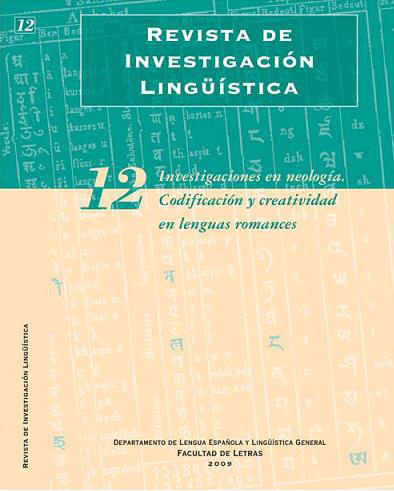Las consecuencias de las ediciones anotadas y glosadas para la lexicografía española
Abstract
The works of specializing subject are a good source for the lexicography, so, in occasions, include glossaries or lexical appendices that try to clarify dark or diffi cult terms for the readers. This happens with the Carpintería de lo blanco, treated that Diego López de Arenas composed in 1633, and that, with the passage of time, it suffered a series of added: in 1727 Santiago Rodríguez de Villafañe publishes a Suplemento o adiciones a El compendio de la carpintería de lo blanco; in 1867 Eduardo de Mariátegui includes a few «Notas» and a «Glosario» and in 1912 Guillermo Sánchez Lefl er returns to stamp the work with all the added ones. This article checks, so, the history of the text, describes his content and structure, analyzes the lexicon of speciality, his presence in the Real Academia Española and presents an edition of the Glosario of De Mariátegui.Downloads
-
Abstract373
-
PDF (Español (España))377
The works published in this magazine are subject to the following terms:
1. The Publications Service of the University of Murcia (the publisher) preserves the economic rights (copyright) of the published works, and favors and allows the reuse of same under the license of use indicated in point 2.
2. The papers are published in the electronic edition of the magazine under a Creative Commons Attribution-NonCommercial-NoDerivative 3.0 Spain license (legal text). Papers may be copied, used, disseminated, transmitted and publicly exhibited if the following requirements are met: i) The authorship and the original source of its publication (magazine, editorial and URL of the work) must be cited; ii) The works cannot be used for commercial purposes; iii) The existence and specifications of this user license must be explicitly mentioned.
3. Self-archiving conditions. Authors can electronically disseminate pre-print versions (version before being evaluated) and / or post-print versions (version evaluated and accepted for publication). This makes possible its circulation and diffusion earlier and with it a possible increase in its citation and reach among the academic community. RoMEO color: green.









